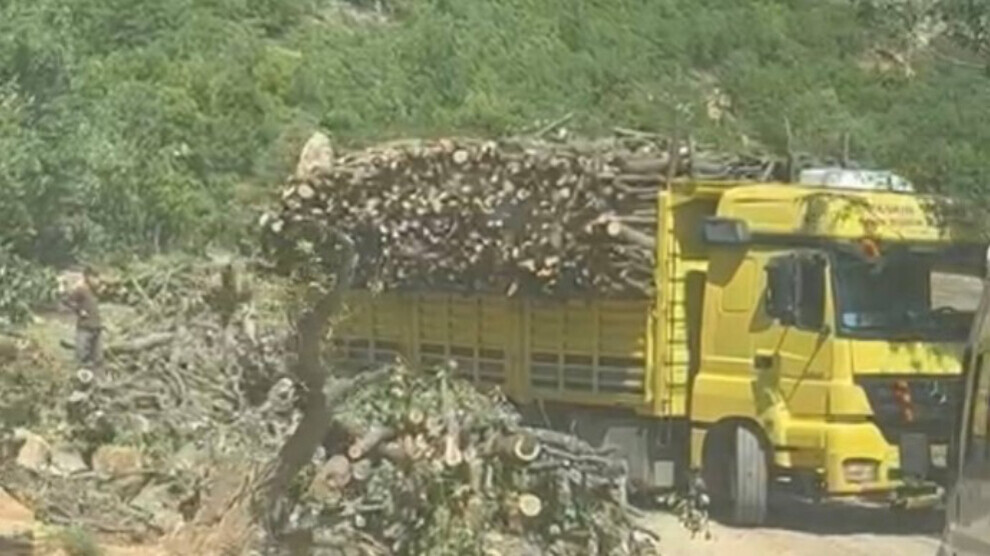Village guards destroy forests in Eruh
The Turkish government is committing crimes against the environment, destroying the forests in Kurdistan territory.
The Turkish government is committing crimes against the environment, destroying the forests in Kurdistan territory.

Countless trees are cut down in North Kurdistan every day and forests are set ablaze. This attack on nature is part of the scorched earth policy to deprive the guerrillas of retreat, but also to open up new areas to mining companies and give profits to collaborators. For this special war, the AKP-MHP regime is committing the most severe environmental destruction.
While forest areas in the Besta, Cudî and Gabar regions of Şırnak have been subjected to heavy destruction within the scope of military projects and plunder, a similar practice of ecocide has been initiated in Siirt now.
In the foothills of the Herekol Mountains in the Eruh district of Siirt, village guards started to cut down trees. It is reported that the felled trees were transported to different locations by lorries.
Destruction of Kurdistan's forests
The destruction of Kurdistan's forests is a direct continuation of the village destruction policy of the 1990s. The fires in the region are often started by the Turkish army to make sure that the guerrillas are deprived of cover through a scorched earth policy and the rural population that supports the guerrillas is driven out. In many cases, forest fires have political-military causes, and even if they break out due to the drought, extinguishing them is prevented for military reasons. The fauna and flora of the region are exposed to destruction. While news of forest fires in western Turkey in general, and especially in holiday regions, reaches the European public, a systematic special warfare is being waged in Kurdistan with forest fires, against which, however, no reactions are raised.
Village guards
Village guards are paramilitary units used in Kurdistan against guerrillas and unwelcome opposition members. They consist, to a considerable extent, of tribal leaders, large landowners, families, and individuals who have often worked with the state for decades in an attempt to advocate for the state's interests in Kurdistan. Some of the village guards join this system voluntarily, while others are threatened with murder, arrest, and expulsion and must become village guardians under pressure. The Hamidiye regiments in the Ottoman Empire are considered the historical model of the village guards. Today's village guard system came into being in 1985, a year after the Kurdistan Workers' Party (PKK) launched its armed struggle. At that time, the Turkish government under Turgut Özal began recruiting and arming Kurdish tribes and clans in the war against the PKK. Thousands of Kurdish villages that rejected the village guard system were burned and razed to the ground by the state in the 1990s.